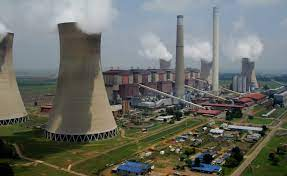Review: Truth to Power: My Three Years Inside Eskom
Eskom used to be a customer of mine when I worked for Westinghouse in the 1970’s. I took several trips to South Africa, but never got any business. Retrospectively, possibly because Westinghouse didn’t pay bribes. Eskom’s current severe load shedding attracted me to this book by André de Ruyter, the CEO of Eskom during the three year period 2020 -2022.

André de Ruyter must have written this book in a hurry. He resigned as CEO of Eskom in late February this year, and the book was distributed in late August. That’s six months to strike a deal with the publisher, Penguin, write the book, have it edited, publicised and published. At just over 300 pages it is filled with facts that he would have had to look up. As most novels have a ‘gestation time’ of at least a year, it is a remarkable feat to publish this book in six months.
de Ruyter got the top job at Eskom in January 2020. He says that 28 presumably qualified black candidates turned down the job. This gives an indication of how tough the job was. Eskom was shedding load regularly, deeply in debt, owned by the South African state, subject to political manipulations, and racked by corruption. de Ruyter says he took the job because it represented a challenge, and out of patriotism to South Africa and not for the low compensation.
In the book, de Ruyter describes the difficulties he faced as CEO:
Eskom had no reserve generating capacity, owing to years of indecision by the government. Government regulation made it impossible for privately owned generation to enter the market. The government wanted 100% control of the electric power market.Eskom’s tariffs were below cost, and the government resisted efforts to raise tariffs, on the basis that cheap energy was desirable, but this only led to a huge debt mountain.Municipalities did not pay the bills for power delivered to them. They had to be taken to court.The government was biased in favor of coal fuel. This made it difficult to plan for renewables for power generation. Moreover, the quality of available coal was deteriorating, contributing to maintenance and output problems.Corruption was rife in the purchasing of coal fuel oil and goods. A major, privately funded investigation found that senior ANC members were involved in corruption.Local police did not co-operate in the prosecution of criminal employeesViolent threats were made against whistle blowers, including the CEO who had to have body guards.The CEO was served a cup of coffee that had been laced with cyanideThe skills base was badly eroded. Regulations made it difficult to re-hire skilled white workers and difficult also to dismiss under performing black workers.The average age of the power stations was more than forty years, and they had not been subject to routine maintenanceRegulations made it difficult to obtain OEM spare parts directly. This opened the possibilities of corruptionSabotage of operating plant for political ends was not uncommon.In spite of these challenges, de Ruyter did accomplish quite a lot:
a plan to transition to a low carbon future with privately- and Eskom-owned renewable generationa culture change in Eskom: loyalty, accountability, and values basedthe division of Eskom into three entities: generation, transmission and distributionde Ruyter resigned when a new chairman was appointed with a brief to run a ‘hands on’ board. This led to management being undermined and second-guessed by amateurs at every turn. Unfortunately, that chairman is still in place.
This book will have caused consternation within the ANC. There are many specific accounts of named government leaders taking decisions and actions which are contrary to the interests of the country.
I have two criticisms of this book. First, it is not well organised. Topics and the timeline are frequently switched around. The whole story still gets told, but in a somewhat disjointed way. Second, de Ruyter lectures the reader frequently about why his management style and techniques are right. They are right, but the average reader will not need the lecture.
This book is a very valuable piece of work. It exposes the inherent weaknesses of a naive, Marxist-oriented government, shows the risks in government ownership of business, and makes the undoubtable case for competent, modern management.



